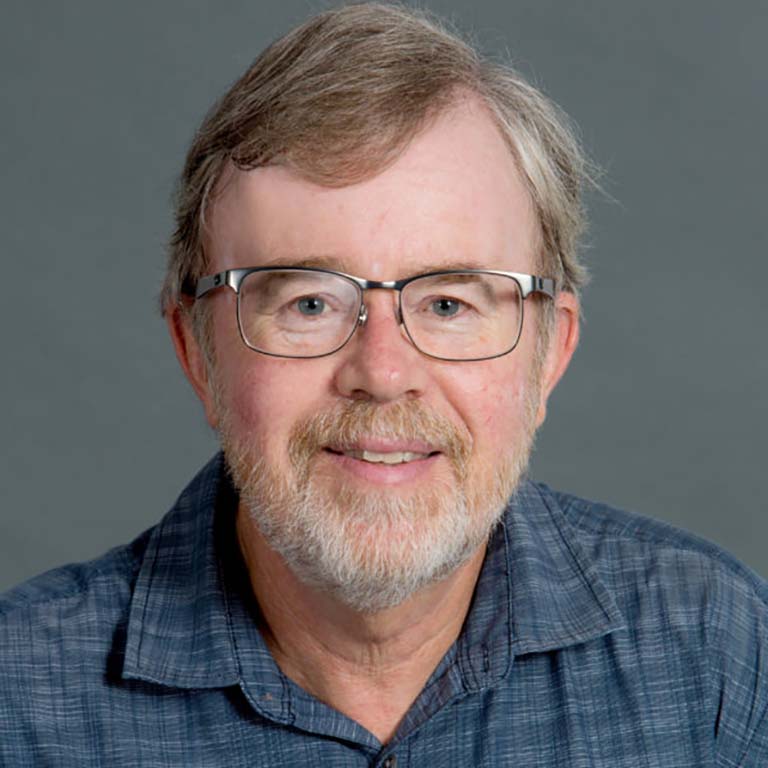Awards
- Bicentennial Medal - 2020
- Distinguished Professor (Emeritus) - 2013
- National Academies - 2005
- American Association for the Advancement of Science

An innovative teacher whose commitment to service through science has benefitted untold numbers, Keith Clay is a biologist who has changed the way other scientists study the environment. For over 80 years ecologists believed competition was the driver of terrestrial ecosystems, but that all changed in 1988 when Clay published a classic paper describing how certain fungi produce chemicals in host plants that the plants then use for defense against mammals and insects. This discovery of a symbiotic relationship providing for defensive mutualism - if the plant could protect itself from being eaten, then the fungi also benefitted - set the foundation for a new subfield in ecology where Clay remains at the forefront to this day. Endophytes living around another plant's cells, usually fungi and bacteria, have now been recognized as having profound effects on plant community structures ranging from forests to savannahs. "For this work alone Dr. Clay has truly earned recognition as a distinguished professor," says prolific researcher Ray Calloway, a professor at the University of Montana. "However, this is just one part of Dr. Clay's scholarly contributions." From plant-to-plant interactions and evolution to soil pathogen influences on plant species mortality in temperate forests, from the ecology of the 17-year cicada eruption cycle in southern Indiana to the interactions of ticks and microorganisms that reside in their guts, Clay's work has always focused on how specific symbiotic interactions affect larger-scale ecological and evolutionary processes. "Each of these research areas by itself is innovative, novel, and influential across a broad range of biology," says the internationally recognized disease ecologist Richard S. Ostfeld, a senior scientist at the Cary Institute of Ecosystem Studies in New York. "Together they comprise a research record that is matched by few."
Just as Clay's research has focused on symbiotic relationships between organisms, his history of teaching, service, and science together reflects a similar interconnectedness, with one feeding and facilitating the others. As director of the IU Research and Teaching Preserve - an asset that has grown to include seven properties totaling more than 1,500 acres and a 6,000-square-foot lab that was IU's first Silver LEEDcertified building - Clay has promoted the same hands-on research and learning experiences that in 1999 earned him IU's Teaching Excellence Recognition Award. That TERA acknowledged Clay's complete rewriting of IU's important Field Ecology course, a process that established a series of field experiments that challenged students with modern concepts while introducing them to their natural environment. Clay's public outreach efforts have extended to Indiana elementary and high schools and to the Bloomington community, as he regularly gives tours, leads nature walks, and runs workshops through the preserve. He has individually and through the preserve led a spring flower walk, participated in orientation of new IU graduate students, and coordinated service activities with local Boy Scout troops. Through his research on the outbreak of the 17-year cicadas, using support from the National Science Foundation, he also developed a highly acclaimed educational video, Return of the Cicadas, along with complementary educational materials that were distributed to every high school in Indiana.
Clay, who has published 177 papers, was also recently chosen to direct IU's new Center for Research in Environmental Sciences, which is dedicated to facilitating multidisciplinary research in the environmental sciences across campus. "Keith's research program has continued at an increasing level in recent years, attesting to his extensive training of young investigators and his continuing fundamental contributions to our understanding of how pathogens impact the structure of ecological communities," says Robert E. Ricklefs, the Curators' Professor of Biology at the University of Missouri. "He stands out in my estimation as one of the most important ecologists in recent years, whose work will continue to influence the discipline for decades to come."
Clay received the IU Bicentennial Medal in September 2020 in recognition of his distinguished contributions to Indiana University.